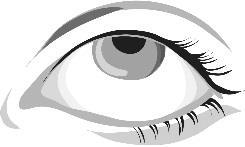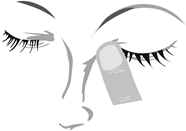
Bimaroz Duo
Ask a doctor about a prescription for Bimaroz Duo

How to use Bimaroz Duo
Package Leaflet: Information for the Patient
Bimaroz Duo, 0.3 mg/ml + 5 mg/ml, eye drops, solution
Bimatoprost + Timolol
Read the package leaflet carefully before using the medicine, as it contains important information for the patient.
- Keep this leaflet, you may need to read it again.
- If you have any further questions, ask your doctor or pharmacist.
- This medicine has been prescribed for you only. Do not pass it on to others. It may harm them, even if their symptoms are the same as yours.
- If you experience any side effects, including those not listed in this leaflet, please inform your doctor or pharmacist. See section 4.
Contents of the Package Leaflet:
- 1. What is Bimaroz Duo and what is it used for
- 2. Important information before using Bimaroz Duo
- 3. How to use Bimaroz Duo
- 4. Possible side effects
- 5. How to store Bimaroz Duo
- 6. Contents of the pack and other information
1. What is Bimaroz Duo and what is it used for
Bimaroz Duo contains two active substances (bimatoprost and timolol) that lower the pressure in the eye. Bimatoprost belongs to a group of medicines called prostamides, which are analogues of prostaglandins. Timolol belongs to a group of medicines called beta-adrenergic blockers. The eye contains a clear, watery fluid that nourishes the inside of the eye. The fluid is constantly being drained from the eye and replaced by newly produced fluid. If the fluid cannot be drained quickly enough, the pressure in the eye increases, which can eventually lead to damage to vision (a disease called glaucoma). The action of Bimaroz Duo is to reduce the production of fluid and increase the amount of fluid drained. This leads to a decrease in pressure inside the eye.
2. Important information before using Bimaroz Duo
When not to use Bimaroz Duo eye drops, solution:
- if you are allergic to bimatoprost, timolol, or any of the other ingredients of this medicine (listed in section 6);
- if you have breathing problems, such as asthma or severe chronic obstructive pulmonary disease (severe lung disease that can cause wheezing, difficulty breathing, and/or prolonged coughing);
- if you have heart problems, such as low heart rate, heart block, or heart failure.
Warnings and precautions
Before starting treatment with Bimaroz Duo, discuss with your doctor or pharmacist if you have or have had:
- coronary heart disease (symptoms may include chest pain or feeling of pressure, shortness of breath, or choking), heart failure, low blood pressure;
- heart rhythm disorders, such as slow heartbeat;
- breathing difficulties, asthma, or chronic obstructive pulmonary disease;
- diseases related to poor blood circulation (e.g., Raynaud's disease or Raynaud's syndrome);
- hyperthyroidism, as timolol may mask the subjective and objective symptoms of thyroid disease;
- diabetes, as timolol may mask the subjective and objective symptoms of low blood sugar;
- severe allergic reactions;
- liver or kidney disorders;
- disorders related to the surface of the eye;
- separation of one of the layers of the eyeball after surgery to reduce pressure in the eye;
- known risk factors for macular edema (swelling of the retina in the eye leading to impaired vision), such as cataract surgery.
Before undergoing surgical anesthesia, inform your doctor about the use of Bimaroz Duo, as timolol may affect the action of some anesthetics. During treatment with Bimaroz Duo, the product may cause loss of fat tissue around the eye, which can lead to deepening of the eyelid fold, sunken eyes, drooping eyelids (ptosis), skin tension around the eye (dermatochalasis), and increased visibility of the lower white part of the eye (visibility of the lower part of the sclera). These changes are usually mild, but if they are pronounced, they can affect the field of vision. The changes may disappear after discontinuation of treatment with Bimaroz Duo. Bimaroz Duo may also cause darkening and excessive growth of eyelashes, as well as darkening of the skin around the eyelid. It may also darken the color of the iris. These changes may be permanent. Changes may be more noticeable when treating only one eye. When in contact with the skin surface, Bimaroz Duo may cause hair growth.
Children and adolescents
Bimaroz Duo should not be used in children and adolescents under 18 years of age.
Bimaroz Duo and other medicines
Bimaroz Duo may interact with other medicines that you are taking, including other eye drops used to treat glaucoma. Tell your doctor or pharmacist about all medicines you are taking, or have recently taken, and about any medicines you plan to take. Tell your doctor if you are taking or plan to take medicines that lower blood pressure, medicines used to treat heart disease, medicines used to treat diabetes, quinidine (used to treat heart disease and some types of malaria), or medicines used to treat depression: fluoxetine and paroxetine.
Pregnancy and breastfeeding
If you are pregnant or breastfeeding, think you may be pregnant, or plan to have a child, ask your doctor or pharmacist for advice before using this medicine. You should not use Bimaroz Duo during pregnancy, unless your doctor advises you to. It is not recommended to use Bimaroz Duo during breastfeeding. Timolol may pass into breast milk. Before using any medicine during breastfeeding, ask your doctor for advice.
Driving and using machines
Bimaroz Duo may cause loss of sharp vision in some patients. Do not drive or operate machinery until the symptoms have resolved.
Bimaroz Duo contains a preservative - benzalkonium chloride
The medicine contains 0.05 mg of benzalkonium chloride per ml. Benzalkonium chloride may be absorbed by soft contact lenses and change their color. Remove contact lenses before instilling and wait at least 15 minutes before reinserting. Benzalkonium chloride may also cause eye irritation, especially in people with dry eye syndrome or disorders related to the cornea (the transparent layer on the front of the eye). If you experience any abnormal sensations in the eye, stinging, or pain in the eye after using the medicine, contact your doctor.
3. How to use Bimaroz Duo
Use this medicine always as directed by your doctor or pharmacist. If you are unsure, ask your doctor or pharmacist. The usual dose is one drop per day, in the morning or evening, in each eye that needs treatment. Use the medicine every day at the same time.
Method of administration
Do not use the bottle if the seal on the bottle neck was broken before the first use.
1. 2. 3. 4. 5.





- 1. Wash your hands. Tilt your head back and look up at the ceiling.
- 2. Gently pull down the lower eyelid to form a small pocket.
- 3. Turn the bottle upside down and squeeze it to release one drop into each eye that needs treatment.
- 4. Release the lower eyelid and close your eye.
- 5. Press your finger on the corner of your closed eye (the part of the eye next to your nose) and hold for 2 minutes. This helps prevent the medicine from entering the body.
If the drop does not get into the eye, try again. To avoid infections, do not touch the tip of the bottle to the eye or anything else. Immediately after use, replace the cap and tighten the bottle. If you are using Bimaroz Duo with other eye medicines, wait at least 5 minutes between instilling Bimaroz Duo and administering another medicine. Apply eye ointment or gel last.
Using more Bimaroz Duo than prescribed
If you use more Bimaroz Duo than prescribed, it is unlikely to cause serious problems. The next dose should be administered at the usual time. If you are unsure, contact your doctor or pharmacist.
Missing a dose of Bimaroz Duo
If you miss a dose of Bimaroz Duo, use a single drop as soon as you remember, and then continue using the medicine as planned. Do not use a double dose to make up for a missed dose.
Stopping treatment with Bimaroz Duo
To work properly, Bimaroz Duo should be used every day. If you have any further questions about using this medicine, ask your doctor or pharmacist.
4. Possible side effects
Like all medicines, Bimaroz Duo can cause side effects, although not everybody gets them. You can usually continue using the drops, unless the side effects are severe. If you are unsure, ask your doctor or pharmacist. Do not stop using Bimaroz Duo without talking to your doctor. The following side effects may occur when using Bimaroz Duo:
Very common side effects(may affect more than 1 in 10 people)
- redness of the eye;
- loss of fat tissue around the eye, which may lead to deepening of the eyelid fold, sunken eyes, drooping eyelids (ptosis), skin tension around the eye (dermatochalasis), and increased visibility of the lower white part of the eye (visibility of the lower part of the sclera).
Common side effects(may affect up to 1 in 10 people)
- burning sensation;
- itching;
- stinging;
- irritation of the conjunctiva (the transparent layers on the surface of the eye);
- sensitivity to light;
- eye pain, stickiness of the eye, dryness of the eye, feeling of a foreign body in the eye;
- minor damage to the surface of the eye, with or without inflammation;
- difficulty seeing clearly;
- redness and itching of the eyelids;
- hair growth around the eye;
- darkening of the eyelids;
- darkening of the skin around the eyes;
- lengthening of the eyelashes;
- irritation of the eye;
- tearing;
- swelling of the eyelids;
- narrowing of the field of vision.
Other parts of the body
- runny nose;
- dizziness;
- headache.
Uncommon side effects(may affect up to 1 in 100 people)
- abnormal sensations in the eye;
- inflammation of the iris;
- swelling of the conjunctiva;
- pain in the eyelids;
- eye fatigue;
- ingrown eyelashes;
- darkening of the iris;
- drooping of the eyelid from the eye surface;
- darkening of the eyelashes.
Other parts of the body
- shortness of breath.
Side effects with unknown frequency(frequency cannot be estimated from the available data)
- cystoid macular edema (swelling of the retina in the eye leading to impaired vision);
- eye swelling;
- blurred vision;
- eye discomfort.
Other parts of the body
- breathing difficulties/wheezing;
- symptoms of allergic reactions (swelling, redness of the eyes, and skin rash);
- changes in taste;
- decreased heart rate;
- sleep disturbances;
- nightmares;
- asthma;
- hair loss;
- fatigue;
- hallucinations;
- skin discoloration (around the eye).
In patients using eye drops containing timolol or bimatoprost, additional side effects have been observed, and they may occur when using Bimaroz Duo. Like other eye medicines, timolol is absorbed into the bloodstream. This may cause similar side effects as beta-adrenergic blockers given intravenously or orally. The likelihood of side effects after using eye drops is less than with medicines given, for example, orally or by injection. The reported side effects include reactions observed during treatment with bimatoprost and timolol for eye diseases:
- severe allergic reactions with swelling and breathing difficulties, which can be life-threatening;
- low blood sugar;
- depression, memory loss;
- fainting, stroke, decreased blood flow to the brain, worsening of myasthenia symptoms (significant muscle weakness), tingling;
- decreased sensitivity of the eye surface, double vision, drooping eyelids, separation of one of the layers of the eyeball after surgery to reduce pressure in the eye, inflammation of the eye surface, bleeding in the back of the eye (retinal bleeding), eye inflammation, increased blinking;
- heart failure, irregular or stopped heartbeat, decreased or increased heart rate, fluid accumulation in the body - mainly water, chest pain;
- low blood pressure, high blood pressure, swelling or cooling of the hands, feet, and limbs, caused by narrowing of blood vessels;
- cough, worsening of asthma, worsening of chronic obstructive pulmonary disease;
- diarrhea, abdominal pain, nausea or vomiting, indigestion, dry mouth;
- red, peeling skin patches;
- decreased sex drive, sexual disorders;
- weakness;
- increased blood test results, which indicate how the liver works.
Other side effects reported during treatment with eye drops containing phosphates are very rare cases of cloudy spots on the cornea due to calcium deposits during treatment.
Reporting side effects
If you experience any side effects, including those not listed in this leaflet, please inform your doctor or pharmacist. Side effects can be reported directly to the Department of Drug Safety Monitoring, Office for Registration of Medicinal Products, Medical Devices, and Biocidal Products, Al. Jerozolimskie 181 C, 02-222 Warsaw, tel.: +48 22 49 21 301, fax: +48 22 49 21 309, website: https://smz.ezdrowie.gov.pl. Side effects can also be reported to the marketing authorization holder. By reporting side effects, you can help provide more information on the safety of this medicine.
5. How to store Bimaroz Duo
Keep the medicine out of the sight and reach of children. Do not use this medicine after the expiry date stated on the label and carton after EXP. The expiry date refers to the last day of that month. There are no special storage instructions. After opening, the solution may become contaminated, which can lead to eye infections. Therefore, the bottle should be discarded after 4 weeks from the first opening, even if there are still some solution left. To remember the date of opening the bottle, note it on the carton. Medicines should not be disposed of via wastewater or household waste. Ask your pharmacist how to dispose of medicines that are no longer needed. This will help protect the environment.
6. Contents of the pack and other information
What Bimaroz Duo contains
- The active substances are bimatoprost 0.3 mg/ml and timolol 5 mg/ml as timolol maleate 6.8 mg/ml.
- The other ingredients are citric acid monohydrate, disodium phosphate heptahydrate, sodium chloride, benzalkonium chloride (preservative), and purified water. Small amounts of concentrated hydrochloric acid or sodium hydroxide may be added (to adjust the pH).
What Bimaroz Duo looks like and contents of the pack
Bimaroz Duo is a colorless or slightly yellowish solution in a plastic bottle. White LDPE bottles with a dark blue HDPE cap and a white LDPE dropper, in a carton. The following pack sizes are available:
- cartons containing 1 or 3 bottles of 3 ml solution.
Each bottle is filled to approximately half and contains 3 milliliters of solution. This amount is sufficient for 4 weeks of treatment. Not all pack sizes may be marketed.
Marketing authorization holder
Adamed Pharma S.A. Pieńków, ul. M. Adamkiewicza 6A 05-152 Czosnów
Manufacturer
Adamed Pharma S.A. Pieńków, ul. M. Adamkiewicza 6A 05-152 Czosnów Rompharm Company S.R.L. Eroilor Street, no. 1A 075100 Otopeni, Ilfov Romania
Date of last revision of the leaflet: 10.2024
- Country of registration
- Active substance
- Prescription requiredYes
- ImporterAdamed Pharma S.A. Rompharm Company S.R.L.
- This information is for reference only and does not constitute medical advice. Always consult a licensed doctor before taking any medication. Oladoctor is not responsible for medical decisions based on this content.
- Alternatives to Bimaroz DuoDosage form: Drops, 50 mcg/ml + 5 mg/mlActive substance: timolol, combinationsManufacturer: Pharmaselect International Beteiligungs GmbHPrescription not requiredDosage form: Drops, 0.3 mg/ml + 5 mg/mlActive substance: timolol, combinationsManufacturer: Genetic S.p.APrescription requiredDosage form: Drops, 0.3 mg/ml + 5 mg/mlActive substance: timolol, combinationsPrescription required
Alternatives to Bimaroz Duo in other countries
The best alternatives with the same active ingredient and therapeutic effect.
Alternative to Bimaroz Duo in Spain
Alternative to Bimaroz Duo in Ukraine
Online doctors for Bimaroz Duo
Discuss dosage, side effects, interactions, contraindications, and prescription renewal for Bimaroz Duo – subject to medical assessment and local rules.














